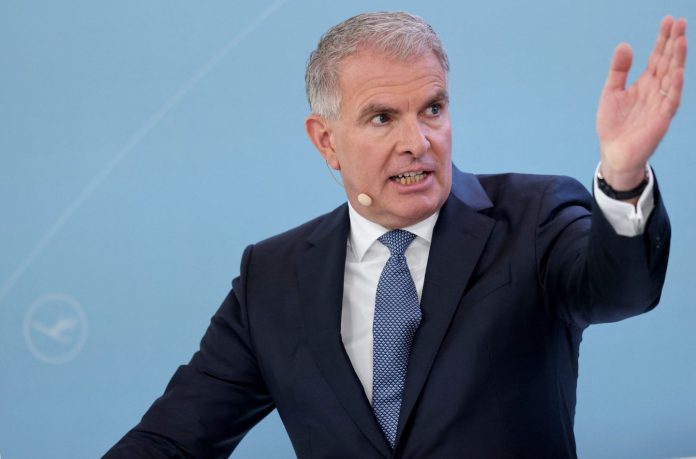The air transport giant will have to consume half of the electricity produced in Germany to keep all aircraft running on green fuel, the CEO said.
Carsten Spohr, the group’s CEO, told a national aviation conference in Hamburg that Lufthansa, which has the largest fleet in Europe, “will need about half of Germany’s electricity to convert it into synthetic fuel.”
But both economics minister Robert Habeck and Federal Network Agency, which regulates Germany’s electricity, won’t give me that amount of energy.
Synthetic fuels or e-fuels combine hydrogen derived from decarbonised sources such as renewable energy and CO2 captured from air or industrial fumes. Such fuels are one of the ways to decarbonise the aviation sector.
However, the process requires huge amounts of green electricity, which Germany does not have, the Lufthansa chief said, noting that such fuels are still much more expensive than the fossil ones.
Earlier this month, the European Parliament passed an agreement setting binding targets for airlines in Europe to increase the use of sustainable aviation fuel, or SAF, which have net zero or lower CO2 emissions than the fossil fuel kerosene.
Chancellor Olaf Scholz on Monday announced his intention to make Germany a strategic centre for the production of such clean jet fuel and attract investment to reinforce its importance as one of the manufacturing centres of Airbus aerospace group.
But Spohr has responded without specifying countries that it seems more “realistic” to produce synthetic fuels “abroad, where wind or solar energy is available in almost unlimited quantities.”
Aviation accounts for 2 to 3 per cent of global greenhouse gas emissions. Industry manufacturers believe that synthetic fuels are likely to remain a transitional technology.
Aircraft manufacturer Airbus is developing technology allowing the first hydrogen-powered aircraft to be launched in 2035.
